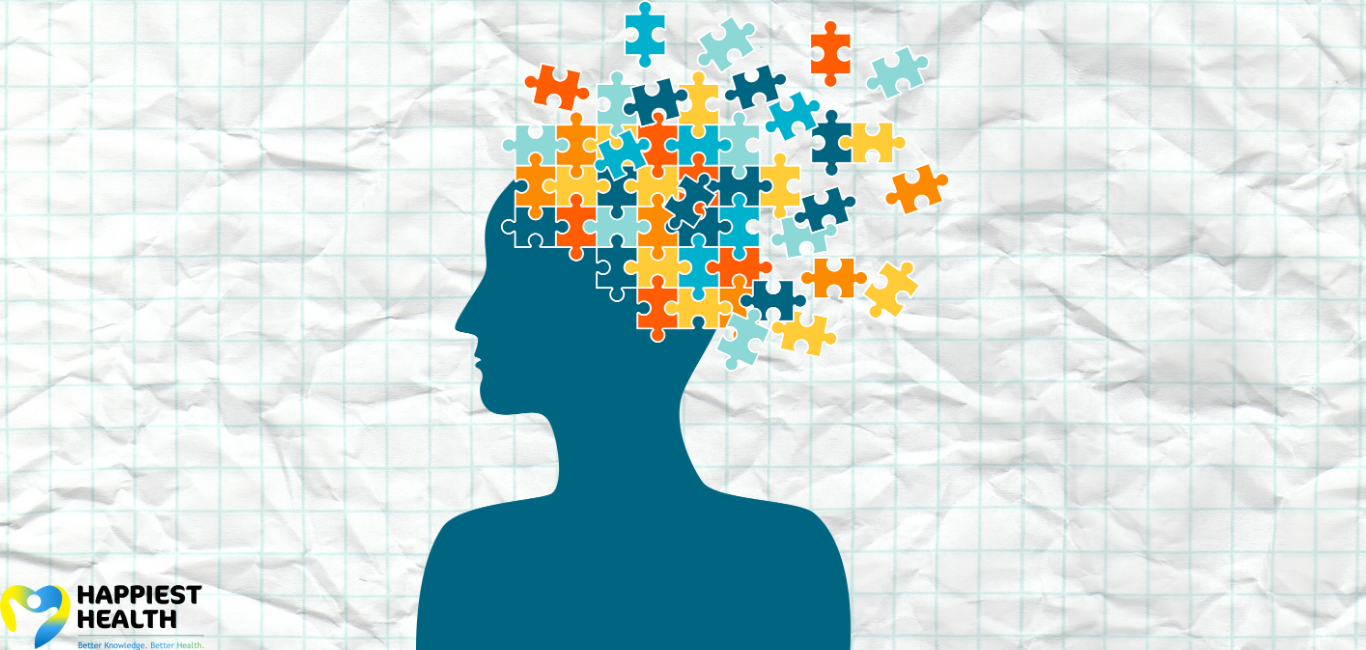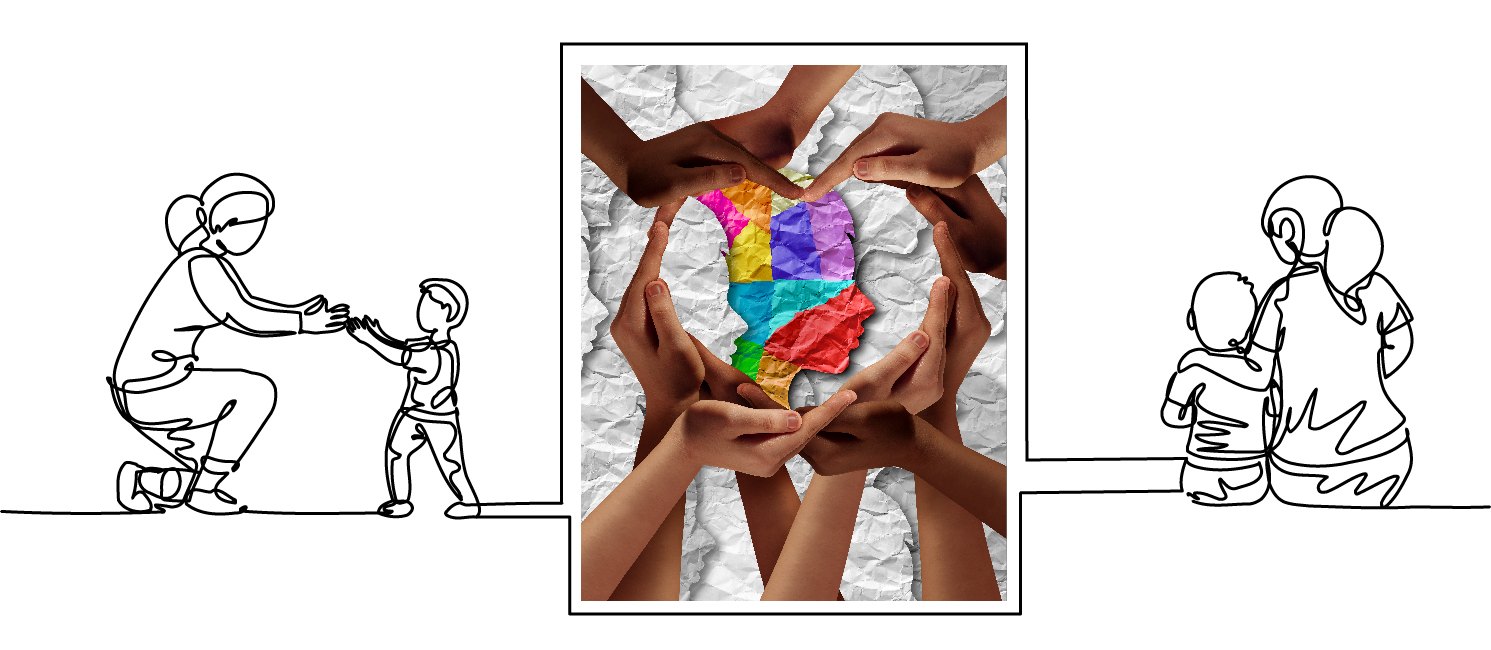
Preeti Dixit is a 45-year-old from Bengaluru who loves digital art and writing poetry. The avid writer has been journaling her thoughts and feelings since childhood. “However, ever since I was diagnosed with autism spectrum disorder (ASD or autism) earlier this year, I shifted my focus to writing about autism and spreading awareness on social media through my experiences,” says Dixit. Her diagnosis was delayed due to masking – a coping strategy seen in many autistic people.
Understanding masking in autism
Masking, simply put, is hiding one’s autistic self from others.
Joy Johnson, a freelance child psychologist from Mangaluru, who is also autistic, explains, “Autistic people mask to fit in with society, for professional success or to avoid getting bullied or punished.”
A 2017 study published in the Journal of Autism and Developmental Disorders found that 86 out of 92 participants masked their autistic characteristics. One participant said they masked to get hired for a job.
It takes great effort for autistic people to mask their symptoms. For example, autistic people have difficulty maintaining eye contact. However, to fit in or to create a social image, they will force themselves to make eye contact by imitating others, even though it is uncomfortable or difficult for them to do so.
Dr Alloukik Agrawal, a post-doctoral fellow and neuroscience expert at NIMHANS, Bengaluru, says that getting negative reactions from society is another reason for autistic people to mask. Dixit recalls a few incidents that prompted her to mask.
“I didn’t know how to talk to my teachers or the principal,” she says. “I approached and behaved with them the way I did with my friends, which was casual.” However, she forced herself to change and adapt when reprimanded for such behaviour.
At the same time, she faced difficulty mingling with friends as she often did not understand their jokes. Nevertheless, Dixit says she laughed with them because she did not want to be laughed at or be isolated.
Expressing emotions is another struggle autistic people face, says Dixit, sharing another instance. “People around me frequently asked why I have a ‘poker face.’ So, I began to change and smiled more often to look approachable.” However, it was a mental struggle as she did not know when to smile. Even today, Dixit struggles to find the right balance in a situation.
Taking a toll
Masking is stressful for autistic people. It needs constant focus and self-assessment of one’s facial expressions and body language to match the mannerisms and behaviours of the people around them.
A 2019 study suggests that masking in autism could lead to mental health conditions such as anxiety and depression. Dixit says, “I have been on medications for both the conditions for the last 10 years.” Masking also often leads to what is called autistic burnout. According to the National Autistic Society, autistic burnout is a state of physical and mental exhaustion, high stress, and reduced ability to manage life skills or social interactions.
Dixit agrees that masking is exhausting. Although she likes social interactions, they take a toll on her, she says, adding, “I have to rush back home and sleep or rest for a long time after socialising.”

Masking may lead to late-or misdiagnosis
Masking autistic symptoms can often lead to misdiagnosis, as in Dixit’s case. She was misdiagnosed with obsessive-compulsive disorder and bipolar disorder owing to overlapping behavioural symptoms. “Late diagnosis took a lot of years from me,” Dixit regrets.
She adds that her husband often tells her that she masks well when she is among people, laughing and socialising with them. But at home, she drops her mask and her face shows her true emotions.
In Johnson’s case, the late diagnosis helped her get answers to the many ‘whys’ that had festered in her mind for a long time. She says, “I could now treat my inner child with more compassion and tell her that it was not her fault.”
According to Dr Agrawal, late diagnosis can be prevented with an early intervention during childhood, as children can barely mask their autistic behaviour. Parents should be aware of the symptoms of autism and closely observe them. “By noticing subtle behavioural changes, parents can approach the health professional to get them evaluated,” he adds.
Unmasking is equally difficult
Unmasking takes a toll on one’s mental health as much as masking itself, as it involves self-identity. Dixit went through a roller-coaster of emotions as she struggled with unmasking. She says she regrets losing her identity by being someone else the whole time just to please others.
She sometimes felt anxious about how people would receive her unmasking stage. “On the contrary, I felt I could not live any other way. I was this whole other person; I’m trying to find the real me,” says Dixit.
Society’s role
Society needs to be more aware and educated about the conditions related to autism to prevent masking or help autistic people unmask, says Dr Agrawal.
Johnson has some advice for autistic people: “after knowing that we are autistic, we should not mask because we have two things to benefit from. One, to be free from emotional stress and physical health issues that arise from masking; two, access to our autistic community who share similar experiences and strategies to adapt.”
Dr Agrawal adds that people’s awareness and empathy might help autistic people be more comfortable in how they are.
Dixit and Johnson agree, and their message is clear and strong: “There are differences in all people. Accept the differences; let us be inclusive and welcoming.”
















